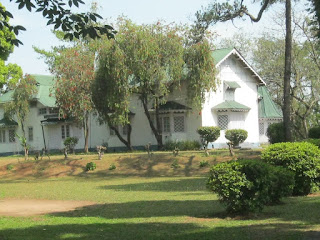Sudhir Raikar , IIFL | Mumbai | April 16, 2016 11:35 IST
Answering the most pertinent question “Why do we need whistleblowers to expose the transgressions of the offshore world?” Seabrooke and Wigan underline an undeniable fact: that we currently lack the power and resources to regulate offshore finance.
- See more at: http://www.indiainfoline.com/article/opinions/the-panorama-beyond-panama-116041600072_1.html#sthash.2gNiHbIS.dpuf

Media is abuzz with a barrage of opinions following the Panama papers release. Most of them state the obvious, how the Panama revelations are just the tip of the iceberg, or indulge in the usual rich-bashing with nauseating black-and-white presumptions, hopelessly articulated through a rampant use of bizarre adjectives.
Few perspectives however seem genuinely thought-provoking – like that of the professor duo Leonard Seabrooke and Duncan Wigan of the Copenhagen Business School. They are quick to remind us the Panama leak is not the first of its kind. Just that the Fonseca Files comprise a longer list of names of politicians and celebrities who have ‘gone into a Shell’ for obvious reasons, dodging taxes and hiding ill-gotten gains to be precise.
Answering the most pertinent question “Why do we need whistleblowers to expose the transgressions of the offshore world?” they highlight the undeniable fact (one that state machineries invariably choose to put out of sight) – that we simply lack the power and resources to regulate offshore finance.
They cite three plausible reasons, backed by field research, for the lack of systemic access to critical information:
The supply-side entities of offshore finance are wedded to secrecy by design – it’s their business model. With a job to devise fool-proof schemes that make the most of the global legal provisions and the cocoon of sovereign states, sharing any kind of information would mean the end of the road for them.
The bureaucracy and inefficiency of the institutions responsible for information-exchange seriously mars the quality and speed of the investigation process. Imagine the delays happening between countries with no friendly ties or reciprocal arrangements if a request for bank account information from one Organisation for Economic Co-operation and Development (OECD) member-state to another takes anywhere close to six months. Contrast this with the speed and alacrity of the perpetrators and we get a fair idea of the gravity of the thorny issue.
Most important, the vested interests of the bigwigs of international finance block any serious movement towards tighter regulation. Profiting from other countries’ hot money is too big a lure to be sacrificed. No wonder, there are scores of mainstream jurisdictions that help the elite across the globe to park their secret funds. Delaware, not Panama, is the easiest place to incept shell companies, the duo points out.
Seabrooke and Wigan acknowledge the traction gained by the faction fighting for fairness and integrity of the financial system – G-20-backed and OECD-led crusade for Automatic Exchange of Information and the 2010 Foreign Account Compliance Act - but lament the fact that the pace is uninspiring. Not to mention the double standards of the major players – demanding about information from foreign shores while conveniently lax about affairs on home turf.
The professors are spot on when it comes to measuring the real worth of the Panama episode: More actionable than the data it provides is the fact that the thorny issue of tax evasion is now more visible than ever before. The big hope is that it will lead to more transparency of financial ownership information and avoidance of tax avoidance strategies in havens that are clearly more thriving than Panama but have conveniently escaped the uproar that made Panama a household name for all the wrong reasons.
The hope, we believe, is bigger in scope. Above all else, the legal and accounting fraternities need to rise above their ephemeral business interests to serve the eternal cause of financial integrity and transparency in an increasing connected world.
This is not to undermine OECD's commitment to the Base Erosion and Profit Shifting (BEPS) package of 15 action points that is reportedly also include inputs from more than 80 non-OECD, non-G20 jurisdictions but it can do more on another front.
More than a token acknowledgment ‘that there are other jurisdictions where a lack of information on beneficial ownership of corporate and other entities is facilitating illicit flows’, OECD must unconditionally accept the fact that the issue of tax evasion is more political than economic. With that stance, it will be on a better footing to claim allegiance to the larger cause in the wake of several allegations like the suspected discrimination in its crackdown on dubious tax regimes – peer reviews for member states and confrontational diktats for non-member states.
Meanwhile, we keenly await Seabrooke and Wigan’s forthcoming book ‘Global Tax Battles’, which, we have reason to believe, would be more profound than J C Sharman’s engaging work ‘Havens in a Storm’ which sought to explain how an alliance of weak powerless havens craftily managed to fortify their in-house dealings, charging the economic organization of dictating terms to them rather than mete out fair treatment, using its own rhetoric of ‘level playing field’ against it.
- See more at: http://www.indiainfoline.com/article/opinions/the-panorama-beyond-panama-116041600072_1.html#sthash.2gNiHbIS.dpuf























